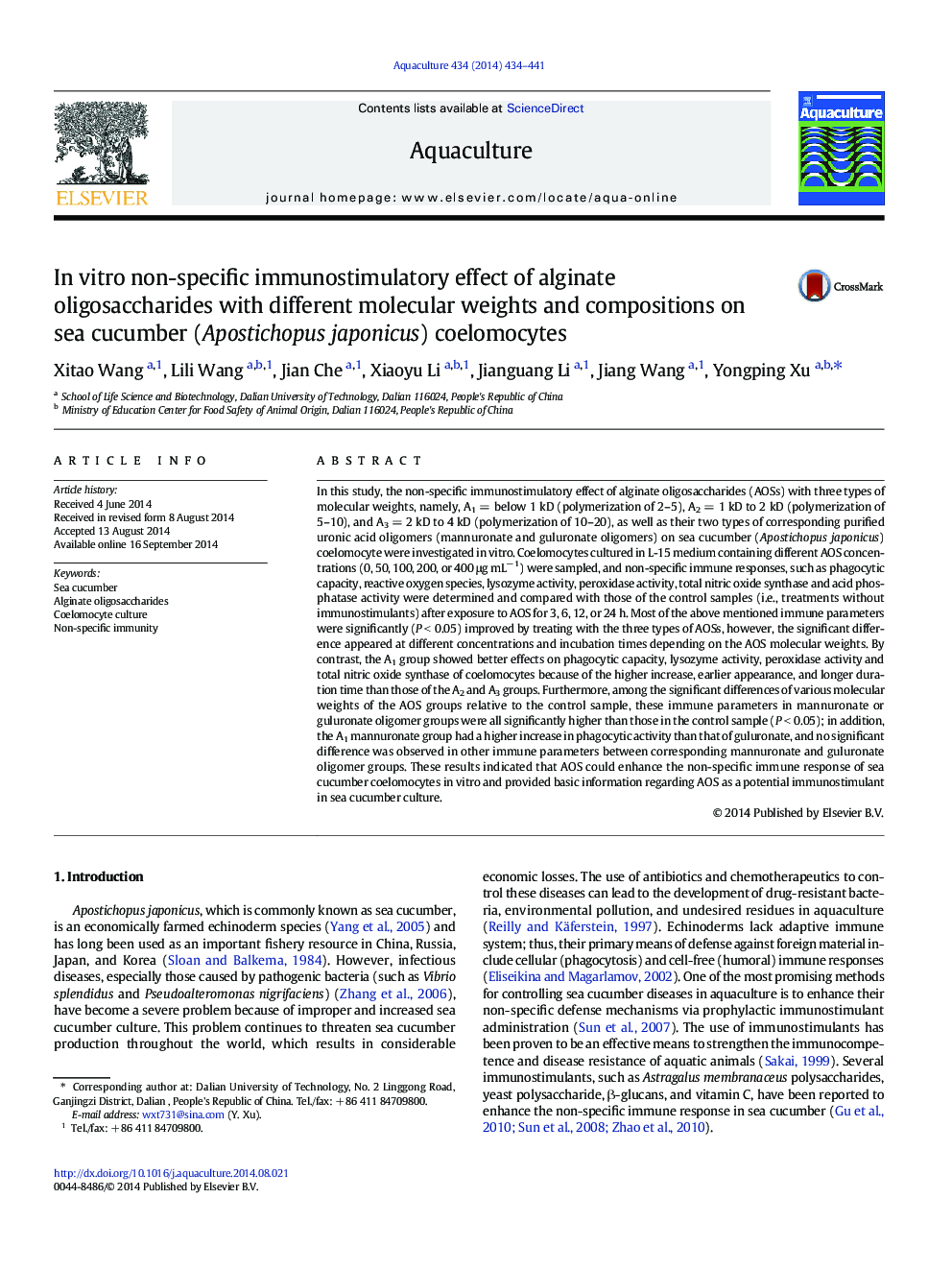| Article ID | Journal | Published Year | Pages | File Type |
|---|---|---|---|---|
| 2421720 | Aquaculture | 2014 | 8 Pages |
•Immunostimulatory effect of AOS with different molecular weights and compositions on A. japonicus coelomocyte were studied.•Alginate oligosaccharides (AOS) can significantly enhance the non-specific immunity of coelomocyte from A. japonicus in vitro.•The low cost and high yield of Laminaria used for producing AOS make it a cost-effective immunostimulant in China.
In this study, the non-specific immunostimulatory effect of alginate oligosaccharides (AOSs) with three types of molecular weights, namely, A1 = below 1 kD (polymerization of 2–5), A2 = 1 kD to 2 kD (polymerization of 5–10), and A3 = 2 kD to 4 kD (polymerization of 10–20), as well as their two types of corresponding purified uronic acid oligomers (mannuronate and guluronate oligomers) on sea cucumber (Apostichopus japonicus) coelomocyte were investigated in vitro. Coelomocytes cultured in L-15 medium containing different AOS concentrations (0, 50, 100, 200, or 400 μg mL− 1) were sampled, and non-specific immune responses, such as phagocytic capacity, reactive oxygen species, lysozyme activity, peroxidase activity, total nitric oxide synthase and acid phosphatase activity were determined and compared with those of the control samples (i.e., treatments without immunostimulants) after exposure to AOS for 3, 6, 12, or 24 h. Most of the above mentioned immune parameters were significantly (P < 0.05) improved by treating with the three types of AOSs, however, the significant difference appeared at different concentrations and incubation times depending on the AOS molecular weights. By contrast, the A1 group showed better effects on phagocytic capacity, lysozyme activity, peroxidase activity and total nitric oxide synthase of coelomocytes because of the higher increase, earlier appearance, and longer duration time than those of the A2 and A3 groups. Furthermore, among the significant differences of various molecular weights of the AOS groups relative to the control sample, these immune parameters in mannuronate or guluronate oligomer groups were all significantly higher than those in the control sample (P < 0.05); in addition, the A1 mannuronate group had a higher increase in phagocytic activity than that of guluronate, and no significant difference was observed in other immune parameters between corresponding mannuronate and guluronate oligomer groups. These results indicated that AOS could enhance the non-specific immune response of sea cucumber coelomocytes in vitro and provided basic information regarding AOS as a potential immunostimulant in sea cucumber culture.
